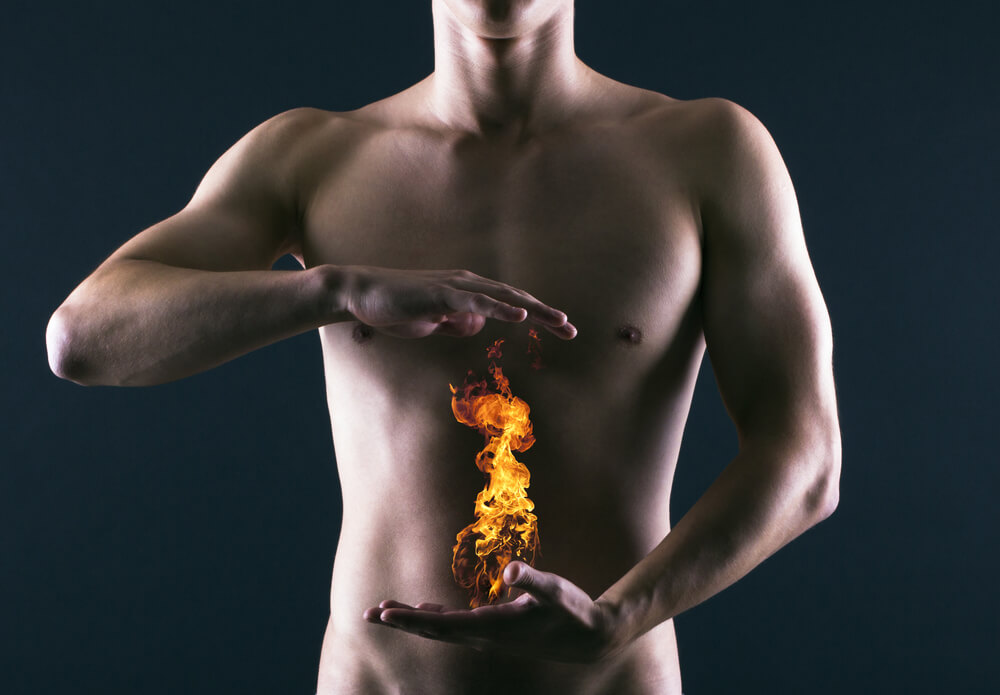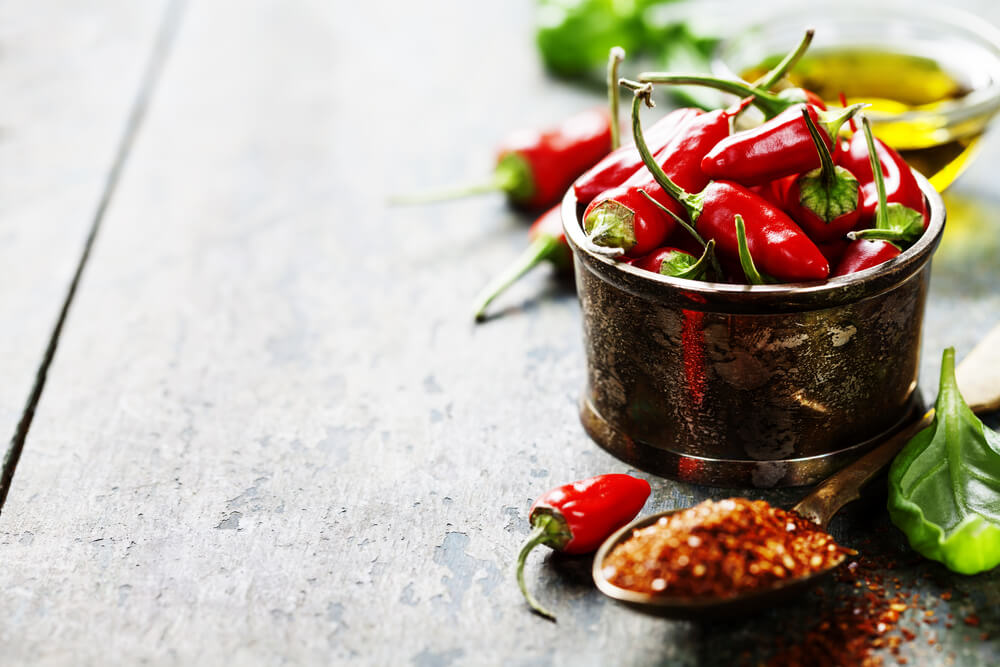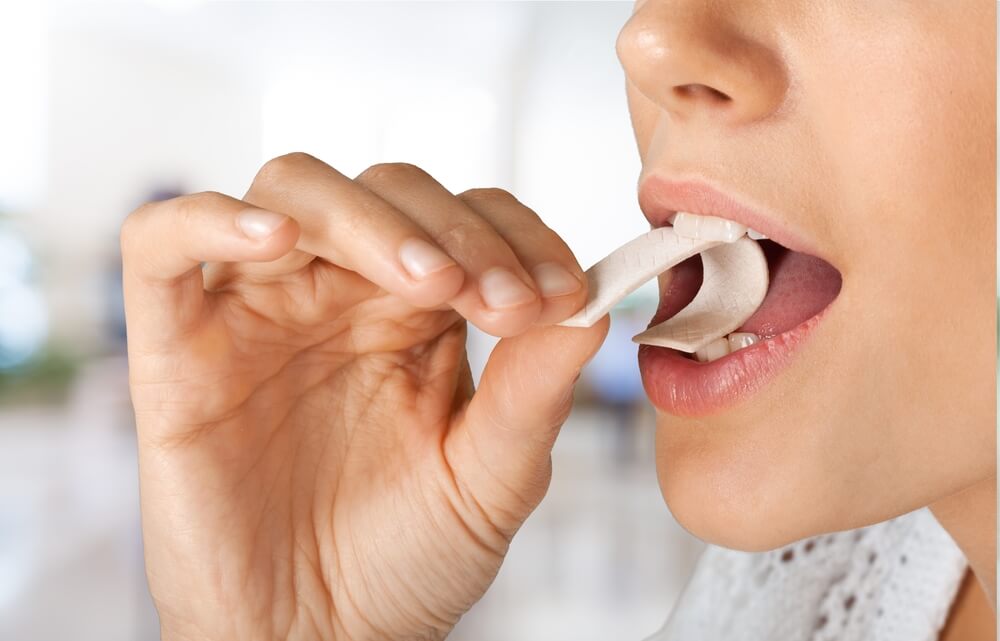First, there is a gentle hiccup, then a burning feeling across the chest and throat comes along. You might think it’s heart attack we’re talking about, but we’re staying true to ourselves and want to tackle another common digestive issue instead: heartburn. While we’re sure that many of you already have your ways of getting rid of heartburn symptoms when they strike, we believe there are also several extremely effective strategies and remedies you might not know about yet.
To make sure you’re ready next time when a heavy meal starts a fire in your chest, we’ve compiled a list of ways that will not only teach you how to deal with heartburn but also how to prevent it. Let’s go!

What Exactly is Heartburn?
Heartburn, also described by experts as acid indigestion, is a medical condition characterized by a painful or burning sensation originating from the middle of the chest or the above part of the stomach. From there, the pain can spread upwards, usually toward one’s throat and even jaw and arms. While the feeling sometimes goes away almost immediately, severe or persistent heartburn can easily stick around for several hours.
What Causes Heartburn?
To understand the heartburn causes, we need to start with the term acid reflux. We’re talking about the stomach acid, which plays a vital role in the digestion of proteins, shields you from infections and much more.
To stop the gastric fluid from being pushed out of the stomach and upwards into the food pipe or esophagus (the pipe connecting your mouth and your stomach), our digestive system relies on the diaphragm and especially on the muscle called the lower esophageal sphincter. It is located at the entrance of the stomach and acts pretty much like a gate – when the food travels down the esophagus, it opens to let it enter the stomach and shuts to prevent any stomach content escaping back into the food pipe.
However, this muscle can sometimes relax too much or open too often, thus letting stomach acid enter the food pipe anyway, coming into contact with its inner layer and burning it. This condition is called acid reflux and is responsible for the uncomfortable sensation widely known as heartburn.
It’s true that some acid reflux here and there is a relatively harmless and even a normal issue that will quickly go away on its own, it can also present a very inconvenient health problem. Along with heartburn spreading throughout the throat and chest, some of its common symptoms also include:
- coughing;
- hoarse voice;
- asthma;
- tooth decay;
- inflamed sinuses
- acidic taste
- swallowing issues
Many of those who suffer from frequent acid reflux and experience severe heartburn are also diagnosed with gastroesophageal reflux disease or GERD, one of the most widespread gastrointestinal issues. If a person experiences acid reflux more than twice a week, GERD is often among the primary suspects.

What Are the Risk Factors for Heartburn?
There are several conditions that can trigger heartburn or make its symptoms even worse. While they usually vary among different individuals, there are some common triggers, for example:
- eating too much at a time and chewing too little
- enjoying a lot of spicy food
- eating foods that are very likely to trigger acid reflux (chocolate, citrus fruits, coffee, cucumbers, onions, garlic …)
- sticking to a diet full of fatty meals
- lying down immediately after a big meal
- smoking
- being overweight
- being under a lot of stress
- being pregnant
- certain medicines (acetylsalicylic acid, antidepressants, narcotics, some tranquilizers and asthma medicines)
- drinking alcohol
- wearing tight clothing
Seems too obvious? You’re right – there are many more risk factors that can easily contribute to occasional or even persistent heartburn. To equip you with the knowledge you need to effectively treat its symptoms, we’ve compiled a list of the most effective natural heartburn cures out there.
Say No to Overeating
Remember the lower esophageal sphincter, the “gatekeeper” muscle we talked about earlier? Well, it turns our that this muscle does not perform well under too much pressure. Experts warn that acid reflux and with it the unpleasant heartburn are especially common right after meals, especially king-size portions. As it seems that larger amounts of food make the situation even worse by weakening the sphincter and letting some acid through into the food pipe, reducing meal sizes might just be one of the easiest heartburn treatment methods.
If you experience unpleasant burning in the chest or throat right after lunch, try to eat a little less next time (several small portions instead of a single feast!) while also making sure you finish your meal in peace and without distractions, allowing yourself to finish on time and not when the signals that you are full finally reach your brain. This way, you will also do your digestion a big favor as eating less will help your gastrointestinal system process food without issues. Want to know more about maintaining a healthy, smoothly-working digestive system? Learn how to avoid digestion issues!

Fearing the Scales? It’s Time to Lose Some Extra Weight!
Not eating too much is also key to minimizing heartburn as a large belly is known to be a major cause of reflux. If you don’t believe us, just ask mummies-to-be about it!
The reason is simple. In healthy individuals, the diaphragm, the muscle that separates the chest cavity from the lower part of the body, assists the esophageal sphincter in its gatekeeping function by providing extra strength.
But when someone has too much belly fat, the pressure in the abdomen can push the lower esophageal sphincter, thus separating it from the diaphragm.
This condition is known as hiatus hernia, the primary reason for the heightened risk of persistent heartburn in overweight people and pregnant women.
Several studies support have successfully shown that all the kilograms adding up around your belly really make you more susceptible to reflux and heartburn while other papers also offer evidence that dropping extra kilos is effective in the fight against heartburn.

What Food Causes Heartburn?
As already mentioned, there are several foods that act as heartburn-triggers. However, these differ from person to person, which makes a definite list of things to avoid very hard to compile. Luckily, there are a few rough guidelines for those who frequently suffer from acid reflux as nutritional experts believe that the following foods are universally among the culprits for the infamous burn:
- peppermint,
- citrus fruits such as oranges and lemons,
- tomatoes and tomato sauce,
- (raw) onions,
- chocolate,
- greasy and fatty dishes.
These foods are universally known to either trigger heartburn symptoms or making things worse when they’ve already stricken, but this does not mean that simply crossing them off your grocery list will make your food pipe safer.
Every person with reflux issues might react differently to different substances, which makes it very important to also create your own list of risky foods. If you’re no stranger to heartburn after meals, simply write down everything you eat and keep track of how you feel afterwards. This way, you will quickly pinpoint your own triggers and extinguish the fire in your throat.
Less Alcohol = Natural Heartburn Relief
By now, it’s probably become clear to you that alcoholic beverages are almost always the culprit for whatever digestive issues we’re talking about. But like always, this time we have a good reason too as drinking is very likely to aggravate the symptoms of acid reflux, making for an even more severe heartburn.
Alcohol increases the amount of acid in your stomach, additionally relaxes your lower esophageal sphincter as well as makes it harder for your food pipe to clear itself of unwanted acid. This is not only bad news for those already familiar with reflux issues as studies suggest that even moderate amounts of alcohol can lead to the same symptoms in otherwise healthy individuals.
If you want to avoid the burn, simply skip that second beer or a glass of wine and enjoy some fresh water. Your stomach will thank you later.
Also Rethink that Second Cup of Coffee
OK, we’ll admit it. There were many studies examining the effect of coffee and, more specifically, caffeine on acid reflux symptoms like heartburn, but their results were not conclusive. While some findings indicate that caffeine as well as other compounds in one of the world’s most popular drinks may actually weaken the lower esophageal sphincter and thus worsen your heartburn issues, some studies don’t seem to be sufficient evidence for such connections.
So, where does this leave us? Experts say that whether or not coffee has influence on acid reflux depends on every individual. This simply means that if you are no stranger to heartburn, you might want to test whether caffeine makes a painful day even worse or not. Some suggest that decaffeinated coffee can make all the difference, but we’ll leave this for you to test out.
And Those Carbonated Drinks Might also Make Things Worse
No, we don’t want to sound like an old cassette, telling you to avoid fizzy drinks like cola and soda in each article, but there’s simply no denying that these things will do you more harm than good. Experts have demonstrated various times that when drinking carbonated water, colas and sodas, the lower esophageal sphincter is temporarily weakened, especially when compared to drinking plain water or fresh juice.
… but Be Careful with Juice!
Especially citrus juice! While studies show that it does not weaken the function of the lower esophageal sphincter, it is very likely that its compounds irritate the food pipe, thus worsening heartburn symptoms. This shows that acidic lemon and grapefruit juices as well as pH-neutral orange alternatives aren’t responsible for acid reflux but might still negatively affect its symptoms.
Are there any useful alternatives? One of them is definitely Donat water which contains sodium bicarbonate. It neutralizes stomach acid, i.e. it decreases its acidity, which alleviates its effect on esophagus walls which causes uncomfortable burning sensation. Due to its unique combination of magnesium and sulphates, it also relaxes the digestive tract and accelerates digestion and thereby contributes to the general health and prevents heartburn.

Use Baking Soda for Heartburn
Treating heartburn with baking soda might just be a lifesaving trick as this home remedy is almost in everyone’s cupboard – You might not even know it’s there! The power of baking soda comes from its ability to neutralize the stomach acid and thus calm down your burning food pipe.
When the burn strikes, simply dissolve a little bit of baking soda (like a teaspoon) in a glass of water and make sure you drink it slowly. And before you run to the kitchen and see whether there’s any left, just wait a second. Do not use baking powder or anything similar, only baking soda! And if you’re on a low sodium diet, you might want to consult a medical professional before using baking soda for heartburn.
Elevate the Upper Part of Your Bed
Experiencing persistent heartburn when you’re supposed to relax and recharge your batteries is a nuisance like no other. And studies show that a large number of people suffer from this exact problem, experiencing acid reflux symptoms at night and struggling to fall asleep.
Researchers, however, managed to show that there is a way of relieving heartburn symptoms at night, and it is a simple one. Put a wooden board, a block of wood or even a chunky old book under the mattress so that the head of your bed is slightly elevated. You can even buy a bed that has an adjustable upper part.
Elevating the upper part of the bed is effective as a slightly raised position of the upper body makes it hard for the acid to travel back up at night, thus staying in the stomach where it can’t hurt the esophagus.
And hey, simply lying on a pillow will not suffice. You need to raise the upper torso to provide heartburn relief, which means putting stuff under the mattress. If you don’t have an adjustable bed frame, experiment with improvised systems until you find the best solution …
And Don’t Go to Bed Immediately After You’ve Eaten
OK, another one that hasn’t yet been backed by solid, irrefutable evidence, but there are already studies on patients with persistent heartburn that actually show people suffering more if they go for a siesta right after a hearty meal.
What we mean is that patients reported exacerbated acid reflux symptoms. Although some more papers are needed and some individuals might be more prone to such issues than others, but you might try to snooze upright after your next lunch. You can even try to eat earlier than usual before going to bed so that more time (at least a few hours) passes between your last meal and bedtime. If this is your magic formula for treating indigestion and heartburn, you can thank us later.

Put on Something Loose
Don’t worry, we won’t go as far as to give you fashion advice all of a sudden, but this one is important if you want to prevent heartburn. But why change clothes?
If you can’t go without your tight jeans, you might be doing yourself harm without even knowing it. Remember what we said about heartburn? It happens when stomach acid escapes into the food pipe and burns its tissue. And this is exactly what can happen if you apply too much pressure on your stomach.
Now you understand why you sometimes have to loosen your belt or whatever is currently compressing your belly. Give it some freedom and you might not experience the nasty heartburn anymore.
Get Rid of Heartburn by Standing Tall
It’s not a joke – you can also deal with heartburn or at least ease heartburn symptoms by simply standing up straight. Reason? Sometimes you can cause acid reflux by sitting or lying down too much.
If you have a very sedentary job, try to take a walk and stretch periodically (your whole body will actually benefit from this, not only your digestive system). And if you suffer from bad posture along with heartburn, not is the time to fix the first to get rid of the second.
When you stand up straight, you put less pressure on your lower esophageal sphincter, the gatekeeper muscle from the beginning of the story that keeps stomach acid in the stomach. This way, you help it perform its duties without issues, thus preventing acid coming in touch with your food pipe.
Eat Less, Chew More … Gum
It might sound funny, but it’s what exerts suggest. Let’s take a look at their arguments. According to studies, chewing gum stimulates saliva production. This additional saliva then helps to dilute stomach acid and clear it from your food pipe.
Having a gum after a meal is therefore a legit strategy for avoiding reflux issues and might come in hand if you’ve just eaten something a little bit fattier or treated yourself to one of your trigger foods. But when going for gums, do make sure you opt for the sugar-free choice so that you don’t hurt your teeth in the process. Chew it for at least half an hour after a meal to get any result.

Smoking is Not Cool
If chewing gum produces more saliva, lighting up a cigarette has just the opposite effect. You might enjoy a few moments of pure stress relief, but if you have issues with heartburn, we’d suggest you rethink your choice. It’s saliva that helps you keep the stomach acid in check, and getting rid of it obviously won’t do you good.
Cigarette smoke can also relax the muscles at the bottom of your esophagus, thus making it easier for the acid to escape from the stomach and cause that burning feeling. And don’t forget about secondhand smoking – your food pipe may also pay the price if you spend a lot of time covered in someone else’s smoke.
Take it Easy
If you remember the beginning of this article, you will know that we’ve already emphasized stress as a major acid reflux trigger. If you want to forget about heartburn as well as other digestive issues, relaxing is therefore one of your top priorities. Take a calm walk, read, lie down (on your elevated bed) or try some yoga. Do whatever it takes to get rid of stress and see if the symptoms go away.
What about Heartburn During Pregnancy?
Indigestion and heartburn during pregnancy are the most common when a woman reaches the third semester as the growing uterus puts more and more pressure on the stomach as well as the intestines. This pressure alone can be so strong that it can push the stomach content right back into the food pipe and cause the burn.
Another important reason for pregnancy heartburn episodes is the hormone called progesterone, which is known to relax the muscles. And guess which muscle it also among the victims … You’re right – the lower esophageal sphincter! This gatekeeping valve therefore makes it easier for the acid to escape up into the food pipe. Progesterone can also be accused of slowing down the digestive processes, which increases the chances of heartburn occurring more often.
All this is quite normal for a mother expecting a child, but how can one deal with indigestion and heartburn during pregnancy? Firstly, a good strategy includes some lifestyle adaptations, for example reducing the portion sizes and eating several times instead, avoiding greasy or overly spicy dishes and regularly exercising to speed up the digestion.
And if this natural remedies for heartburn simply don’t suffice, you can also resort to some medications. But a word of caution is necessary here. Talk to your doctor about which ones are safe to use during pregnancy as not all are acceptable. Aspirin, for example, has been associated with tragedies like child loss and several defects in infants such as heart issues or internal bleeding. Be careful and take care of yourself as well as your little one.

But What Do I Do in Case of Persistent Heartburn?
It cannot be exactly determined for how long you are going to suffer from heartburn. Some people experience the burning sensation for only a few minutes, while some other can experience it for hours or even days. If the painful burning sensation in the esophagus occurs after consuming certain foods that cause heartburn, this will normally pass after the problematic food is digested.
Sometimes, simple home remedies for acid reflux, like the ones you find in this article, aren’t enough to help you overcome the issue. If you have to put up with heartburn more than two or even three times per week, it’s better to visit a doctor.
You need to remember that while occasional heartburn is completely normal, the condition should not interfere with your daily activities, especially on a regular basis. In this case, you might be suffering from gastroesophageal reflux disease or GERD, which requires a special kind of treatment. If you are afraid that you might have fallen victim to this digestive condition, here is a quick list of symptoms that shouldn’t make you think twice about heading to your GP:
- burning in your chest/heartburn
- nausea and vomiting
- sore throat and hoarse voice
- painful or difficult swallowing
- bad breath and acidic taste in the mouth
- green, yellow or even bloody vomit
- throat pain during a meal
- breathing problems
- fast tooth decay
And Finally: Fight Heartburn with Healthy Lifestyle
There are many methods of heartburn treatment that do not require medical assistance. If you only have to deal with reflux issues once in a while, resorting to the tactics above will usually suffice. In general, this means:
- avoiding the most common heartburn triggers such as fatty or spicy dishes,
- eating smaller portions
- avoiding alcohol and fizzy drinks
- swapping cigarettes for some chew gum
- having dinner at least a few hours before bed
- taking care of your body weight
In other words, live a healthy life and take care of your digestion. You can also read an article about stimulating a digestion process to find out what you can do for smooth functioning of your digestive system. And if you want to “reset” your digestive tract in order to feel better, read our article about detox.
Frequently asked questions
1. How can we get rid of heartburn in a natural way?
The most efficient natural ways of getting rid of heartburn include losing weight, avoiding nutrients that cause heartburn (such as peppermint, raw onion, citruses, tomatoes, and fatty food…), alcohol, soft drinks, sweet juice, and lifting the bed’s headboard. It is also recommended not to go to bed immediately after a large meal, wear more comfortable clothes, get rid of stress, and stop smoking. If heartburn keeps happening and it doesn’t go away, the best is to consult your doctor.
2. What causes heartburn?
Causes of heartburn are numerous and diverse, and they range from being overweight and overeating, to excessive exposure to stress, tight clothes and, of course, unhealthy diet and consummation of foodstuffs that often cause heartburn (citruses, tomatoes, peppermint,…). Also, the chances for heartburn are bigger if you go to bed right after eating, if you smoke or take certain medications (acetylsalicylic acid, anti-depressants, narcotics, some sedatives, and asthma medications). Pregnant women also have more problems with heartburn.
3. Which foodstuffs cause heartburn?
Heartburn is mostly caused by fatty food, but also foodstuffs such as peppermint, citruses, tomatoes, raw onion, and chocolate. Regarding drinks, the biggest risk for heartburn comes from alcoholic and soft drinks.
4. What should you drink in case of heartburn?
Donat Natural mineral water also helps with heartburn. With its unique combination of minerals, it reduces the acidity of stomach acid and therefore alleviates the burning sensation. If you suffer from heartburn, drink 2 to 3 dcl of lukewarm Donat a few times per day, always on an empty stomach.
5. How long can heartburn last?
The burning sensation can last from a few minutes to a few days. If the problem is related to certain food, the burning sensation normally calms down once the food is processed. If you suffer from heartburn a few times a week and it doesn’t go away for a longer period of time, make sure to consult your doctor.
Choose chapter:






